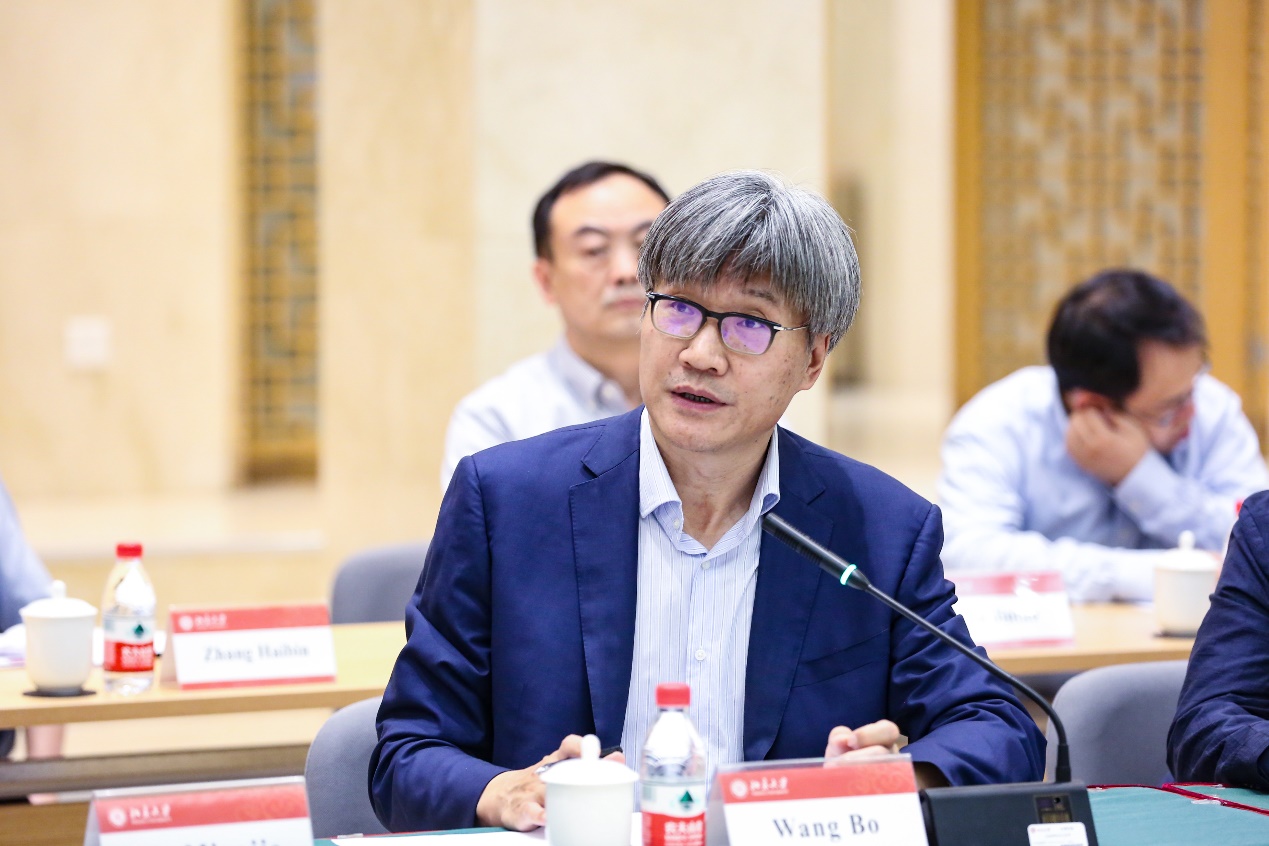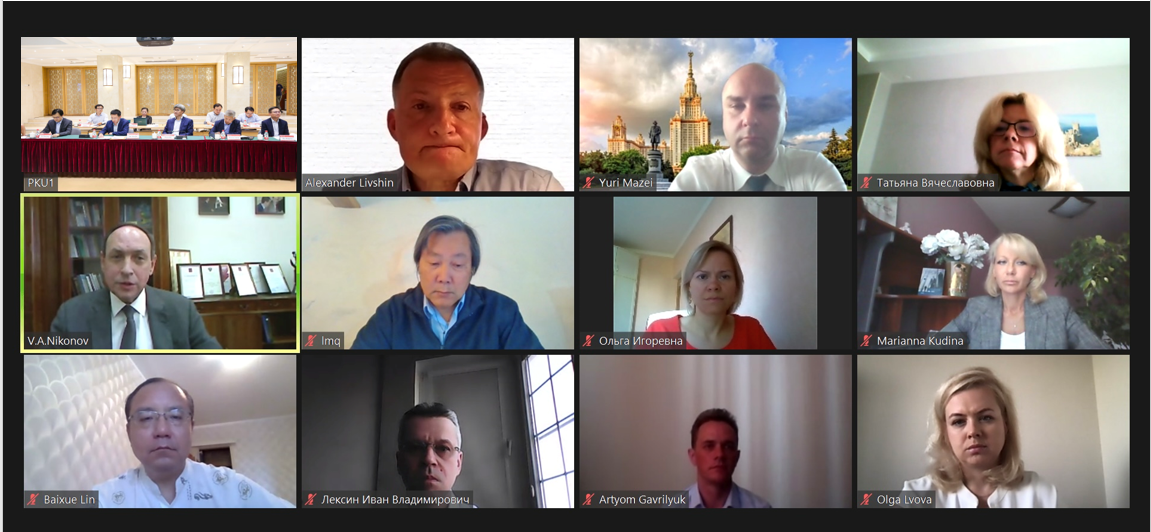An international roundtable meeting titled "Sustainable Development of the Innovative Economy of Russia and China in the Conditions of Global Socio-Economic Transformations" and co-hosted by Moscow State University (MSU) and Peking University (PKU) was held online on June 22, 2021. Wang Bo, vice president of PKU, and Y. Mazei, vice rector of MSU, attended the opening ceremony and gave opening remarks.
Wang Bo expressed his congratulations on the convening of the meeting. He pointed out that the collaborations between PKU and MSU have endured for more than 30 years. In the new era, cooperation between the two universities have entered a new phase of development. In 2020, the outbreak of COVID-19 brought a negative impact to the global economy. Experts and scholars from both universities should cooperate to provide new ideas for the development of global economy, he said.

Y. Mazei pointed out that collaboration between PKU and MSU had a long-term history. The two sides have been running several global projects jointly, including a joint center of mathematics established last year and a Confucius Institute. He expressed his wishes for the meeting to have very fruitful discussions.
The meeting had two sub-forms, respectively themed "The Roles of China and Russia under the great changes in the global economy and trade" and "Construction of a new development pattern for China and Russia: An innovative, green and digital economy." Prof. Yu Miaojie, Cheung-Kong scholar and Boya Chair professor and deputy dean of PKU's National School of Development; Zhang Haibin, deputy dean of PKU's School of International Studies; V. Nikonov, dean of the School of Public Administration of MSU; M. Kudina, associate dean for research at the School of Public Administration of MSU, and other scholars and experts from both universities attended the event and made presentations.
The presentation by V. Nikonov was titled "Russia and China: Partnership in Global Politics and Economy." He said that the productive cooperation between China and Russia over decades had laid a solid foundation for the future development of the relationship between two sides. Over the past four decades, China has demonstrated to the world how to fight diseases and resume economic growth, despite all the difficulties. Although facing external challenges, the two countries are at a high level of cooperation, Nikonov said.
Focusing on the key phrases "new economic development stage," "ideas of new development," "paradigm of new development," Yu Miaojie made a presentation titled "China's Dual Circulation under the New Development Paradigm." He opined that China had recovered from the pandemic and had become the locomotive of world economic development. It is now switching to a new development stage. Guided by the ideas regarding new development, the dual circulation strategy is playing a key role for contemporary Chinese economy, Yu said.
Prof. Zhang Shiqiu from PKU's College of Environmental Sciences and Engineering made a presentation titled “Green transition and carbon neutrality: Efforts for and issues in responding to global and national environmental changes in China.” She said that, since 2005, China had made progress and big achievements, including decreasing primary pollutants emission, improving air and water quality, and energy efficiency. In the post-epidemic era, the direction of the economic recovery should not point backward to previously rigid economic models characterized by unsustainability, inequality, and inequity, but rather forward, toward high-quality green development, the sustainable development goals, de-carbonization pathways, and an ecological civilization construction, Zhang said.
The presentation by Prof. T. Zaitseva from the MSU's School of Public Administration was “The positive and negative consequences of digitalization of jobs.” She reviewed the key breakthroughs in the evolution of technology, analyzed the remarkable effects (both positive and negative) of emerging technologies on organizations, work and employees, and discussed a case of disruptive digital technologies on the workplace.

During the meeting, the attendees also analyzed the economic conditions of China and Russia under the conditions of technological transformation and discussed the application of the academic and practical achievements of innovative technologies in science, education and production. The meeting explored future research directions for Chinese and Russian scholars, consolidated the cooperation between scholars, scientific research and production units, established a connection between Chinese and Russian academic circles, and made contributions to attracting young scholars to participate in scientific exploration.
Also participating in the meeting were PKU representatives Xia Hongwei, director of the Office of International Relations and deputy director of PKUIAS; deputy deans of the National School of Development, Huang Yiping and Xu Jintao; Huang Zhuo, deputy director of PKU's Institute of Digital Finance; Liu Minquan, a professor of PKU's School of Economics; Assistant Professor of Political Science of the National School of Development Xi Tianyang; Wang Xi, an assistant professor from PKU's School of Economics; and Lin Baixue, the Chinese dean of the Confucius Institute at MSU.


